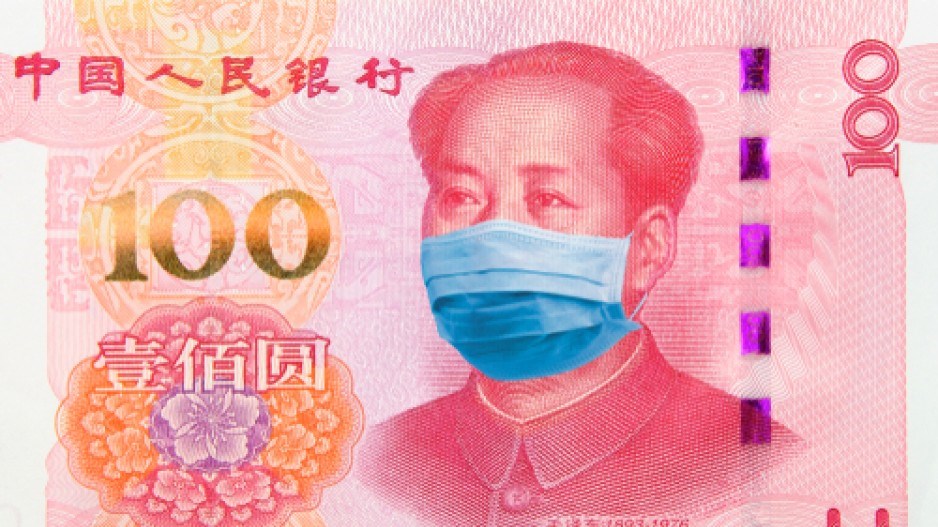The stock for B.C.’s largest mining company, Teck Resources (TSX:TECK.B), plunged 7.5% Monday morning, January 27, but it wasn’t the controversy over its Frontier oil sands project that caused the dip, but rather a diagnosis by Dr. Copper that China is sick with a new virus.
And as is often the case, when industrial metals like copper falls, gold prices have increased, as has the value of the American greenback.
Fears of a new coronavirus similar to SARS taking a toll on China’s economy has triggered commodity price drops. The Canadian dollar has also lost value against the American dollar, which is up by about two cents, compared to the Canadian dollar, since January 20.
The 2019-nCoV virus, which appears to have jumped from animals to humans, emerged in the city of Wuhan in the province of Hubei, where an estimated 80 people have died so far.
The Chinese government has taken extraordinary measures to contain the virus – quarantining entire cities, like Wuhan, and putting in travel restrictions. Eleven cities in China have had travel restrictions placed on them, according to the Canada West Foundation, "which in total have about the same size of population as Canada."
Those measures are expected to have a significant impact on China’s economy, which is the world’s largest consumer of industrial metals like copper, and second largest consumer of oil.
Not surprisingly, the currencies of resource-based countries like Canada and Australia are feeling the impacts, weakening against the American dollar, which is up $1.32 compared to the Canadian dollar – an increase of $0.02 since January 20.
Some analysts call copper Dr. Copper, since it is an economic bellwether that takes the temperature of the global economy. Copper is one of B.C.’s most valuable exports.
In addition to Teck, B.C. copper miner Taseko Mines Ltd. (TSX:TKO) saw shares drop 4% Monday, and Imperial Metals (TSXLIII) had a 2% drop.
China is the world’s largest consumer of copper – accounting for about 50% of the global demand.
Market jitters over the coronavirus and its impact on China’s economy drove copper prices down by about 3% on Monday. The S&P/TSX Composite Index was down 122 points Monday morning (a 0.7%) drop.
Global oil prices have fallen to a three-month low, according to Oilprice.com. Western Canadian Select dropped 4.3% Monday, while West Texas Intermediate dropped 2.6%.
Stock for Canadian oil producers like Suncor Energy (TSX:SU) and Canadian Natural Resources (TSX:CNQ) was down 2.5% to 3% Monday.
“A lot of the demand growth comes from China, and so for these two commodities specifically (oil and copper), you did see a bit of a price reaction since last week,” said Omar Abdelrahman, an economist with TD Economics.
He said the SARS epidemic of 2003, which also arose in China, offers insights on how long the impact on commodity prices could last this time around.
“If we use, for example, something like the SARS experience from 2003 as a historical benchmark, activity did get impacted from an economic growth perspective in China at the time, but it was only temporary, and you saw activity rebounding after that,” Abdelrahman said.
“We’re assuming a similar profile, in the sense that Q1 we expect to see some impact on growth, some impact on commodity demand. Slowly, by the time we hit the second quarter, activity starts to rebound and commodity prices would respond in turn.”




